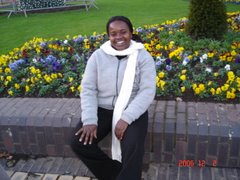The ethical guide to eating fish
The expression 'plenty more fish in the sea' shows how seafood has long been viewed as inexhaustible, but the reality is that fish stocks around the world are under threat. According to the UN, nearly 70 per cent of marine fisheries are either fully or overexploited and 10 per cent are depleted or recovering from depletion.
So should a conscientious consumer stop buying fish altogether or eat only those species that are not overexploited? Or choose farmed fish over wild ones?
Such questions inspired Bernadette Clarke of the Marine Conservation Society (MCS) to write the Good Fish Guide. Clarke recommends that you ask a few questions about the fish you are about to buy. For starters, find out where the fish has come from. North Sea cod is endangered but other populations off the coast of Iceland are healthy and fished sustainably.
Size does matterThe size of the fish or fillet you're buying is important. Catching small, immature fish denies them the opportunity to reproduce. You should also establish how your fish was caught. For example, dredging for scallops involves scouring the seabed with a plough-like apparatus, and the damage is akin to digging up a meadow for the odd turnip.
Diving for scallops has little impact on the environment, but is labour-intensive and unlikely ever to meet demand. Scallop farming is, however, a truly sustainable method of food production.
The problem with fish-farmingNot all aquaculture is so benign. Sealice proliferate in the densely stocked cages of salmon farms, and can infect wild fish, while escaped fish may interbreed with their wild cousins, diluting the gene pools of fish that have evolved into river-specific populations. Furthermore, salmon are fed on small, bony fish, which are being caught in ever-increasing quantities for fish farms and are the prey of beleaguered, wild fish such as cod, haddock - and salmon.
Organic salmon, certified by the Soil Association, is now widely available. At least 50 per cent of the fish-meat in the pellets fed to organic salmon must come from the by-products of wild fish caught for human consumption. The balance must be sourced from sustainable wild resources.
Sustainable fisheriesThe Marine Stewardship Council (MSC) certifies sustainable fisheries. Fish that carry the MSC logo come from healthy stocks and are caught using non-damaging techniques. Similarly, the EC has introduced a regulation ensuring traceability, and from now on all fish will have to be clearly labelled with basic information about its origins. If you need more details, ask the fishmonger or the chef. If you don't get satisfactory answers, don't buy - there are many more ethical fish you can fry.
Tuesday, January 2, 2007
Subscribe to:
Post Comments (Atom)






No comments:
Post a Comment